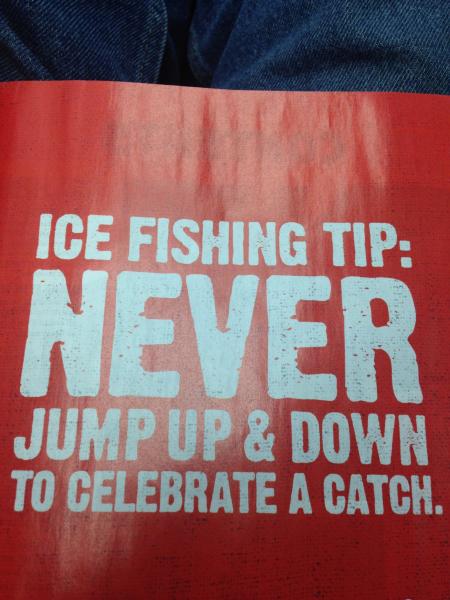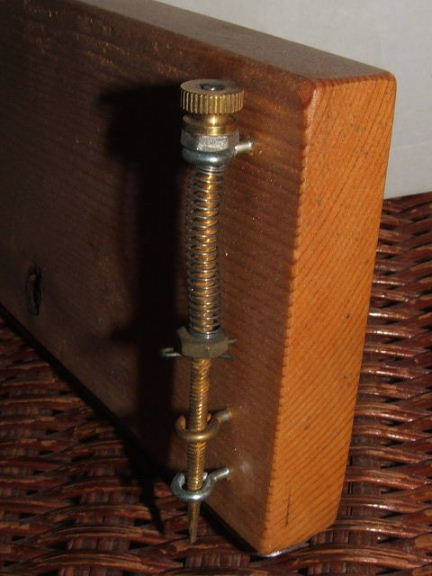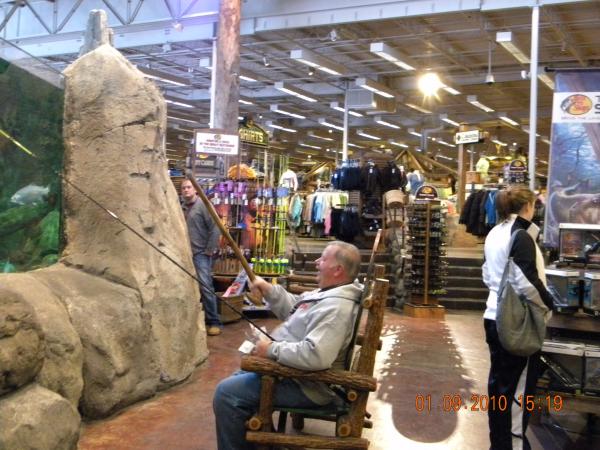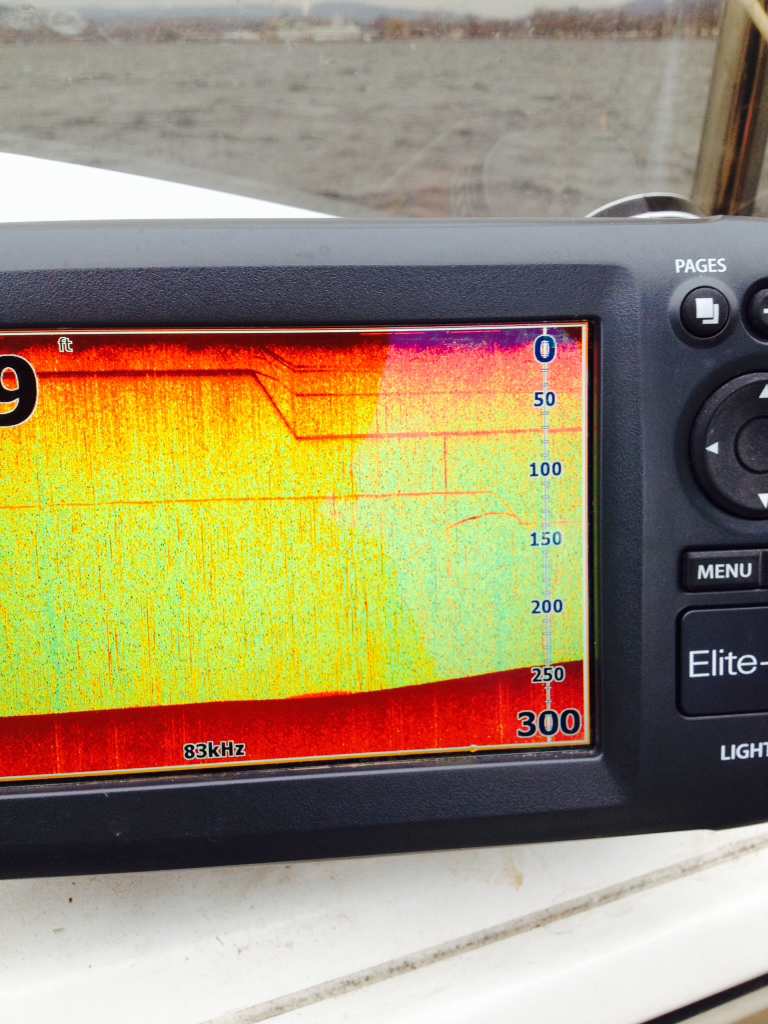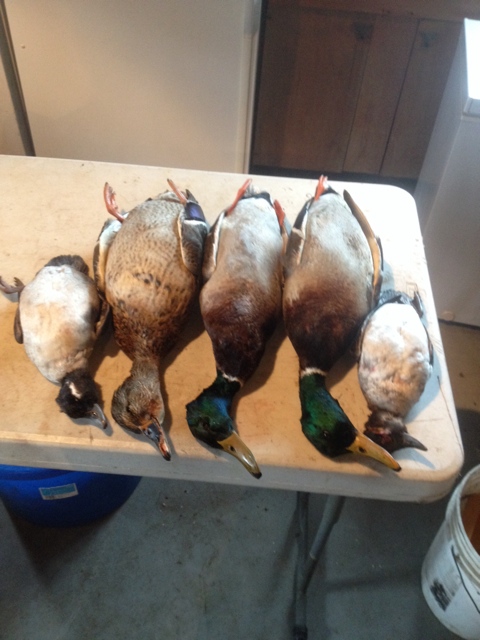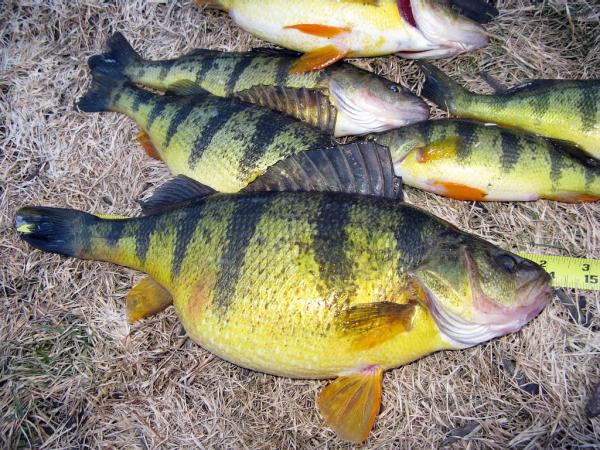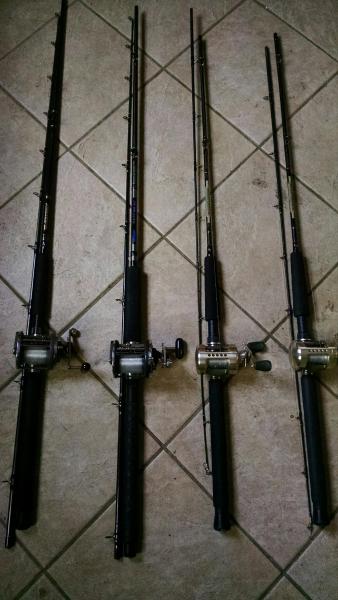-
Posts
13,806 -
Joined
-
Last visited
Content Type
Profiles
Forums
Events
Gallery
Store
Everything posted by Sk8man
-
-
Guess I'd rather take my chances explaining to a judge than being greeted by St Peter
-
Or for keeping a magnum under your jacket
-
I'm anxiously awaiting another season on the ice and thought that it might be an appropriate time to see if others here are willing to share any tips or helpful information they have discovered over the years to help out folks who might be interested but inexperienced to speed up the learning curve a bit. I'm not talking about divulging your life long closely held spots or derby tactics or anything just some helpful hints: I'll start it off with these as examples: (they can be specific fishing tactics, safety tips, things you have discovered to be comfortable etc.) 1. Wait until there is good hard ice at least 3 inches thick before going out there and don't go alone. Check thickness along the way at intervals. Remember: the most dangerous ice is not necessarily the hard clear stuff that may spook you or is slippery it is snow covered ice where you can't detect what is beneath you (gas pockets, faults, thin ice spots or other defects. 2. Take a "spud" or "ice chisel" with you besides having your auger and use it to "test" the ice. 3. Tape up some soft material (e.g. short section of swimming noodle) to the mid part of the rope of your sled for hand comfort 4. Carry a flashlight of some sort (inexpensive LED headlamp) for coming back in in the dark and it can double for "charging up" glow jigs as well. If using the headlamp get one that uses triple A batteries rather than the often hard to find disc type. 5. Carry "ice picks" on a cord and easily accessible in case of emergency (I also usually carry a boat seat cushion with a rope attached as well in my sled) 6. A propane or gas heater can be a welcome addition to your day as well as good warm gloves and heavily insulated boots 7. Dress in layers (plenty of them) to stay comfortable. You can always shed things if you get too warm and you don't want to start sweating because you'll be chilled. 8. Don't bring any more items than you'll actually need (I'm VERY guilty of this) because the trip out and back will seem MUCH longer as a result 9. Buy a good auger (whether power, hand, or battery powered drill type) and keep the blades sharp. Keep the cover over the blades when not in use because it keeps them sharp as well as protecting you from disaster. 10. Drill a bunch of holes when you first get to your spot whiie you are "fresh" and also so that you'll allow things to calm down (noise etc.) and any fish that were "spooked" may return to the area. 11. If you are "prospecting" or don't have a depth finder) drill some holes in an "X'" shape with holes spread out 20-30 ft from each other starting from shoreward working outward. That will allow you to determine a depth "range", give an idea of the "slope" of things as well as possible bottom characteristics (e.g. mud, weeds, gravel) and by jigging in the holes you may be able to see the direction of any fish action for further consideration. 12. Assess wind direction when you are at your spot and face your shelter (if you use one or your back if you just sit on a bucket) away from the oncoming wind whenever possible 13. Buy (inexpensive) hand warmers to put in your mits or gloves. They last for many hours 14. For your main jigging hole to help keep it from freezing over pour a little coffee or other hot liquid in it. 15 To keep bait alive and unfrozen I keep mine in a small Little Oscar cooler that has a lid that locks down. It is relatively small but holds a lot of fathead minnows and it is insulated so it can take the real cold 16. Bring a tape measure with you for game fish in case you get lucky. 17. If fishing from an ice shelter (Clam Frabill, Eskimo etc.) anchor it and help keep the wind out by placing snow around the bottom of it (skirt) "sealing it off" 18. White LED battery powered Xmas lights strung on the supports or taped to the inside work well for lighting when needed. 19. Don't try to change jigs right over your hole or open a box of hundreds of jigs balancing it on your knee in the snow.....and don't ask how I know this 20. Consider buying a hand held depth finder (one of my handiest purchases over the years) which saves a lot of time especially in unfamiliar places. It will allow you in clear (bubble free) ice to get depth readings as you go along and to spot bottom drop offs/contours. See pic. 21. Early ice and late ice are often the most dangerous times out there. Pay particular attention to areas where "bubblers" are used near docks where the ice may be undercut many yards away from the action (speaking from personal experience).
-
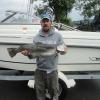
Sold / Closed great guy to deal with
Sk8man replied to BarringtonTrapper's topic in Classifieds - Buy, Sell, Trade or Rent
Except when their website security is compromised...I no longer trust them or deal after a major screwup with an account I had. It works OK until they are hacked again -
Geez, kinda depressing....what will we use for an excuse next year for not catching salmon? Hey tell me the guy in the next article entitled "Early Surfin on Oneida Lake" doesn't look like a dead ringer for Todd on the Goldrush show on the Discovery channel
-
Just part of the up and down cycle....have seen it since 1975 and it has been worse when the bait was down as well ......the numbers of young fish should be a good omen for the near future especially with the bait population looking healthy as long as there aren't any environmental or weather disasters.
-

Now that the kings have run...opinions, please.
Sk8man replied to Gator's topic in Open Lake Discussion
Chas I think that the distribution of the bait may have been screwed up because many folks including me saw hoards of bait out there this season and a lot of it without fish appearing to be nearby. -

Now that the kings have run...opinions, please.
Sk8man replied to Gator's topic in Open Lake Discussion
Keith's question is a great one. I think no matter how you slice it the accurate answer will be complicated and complex and should take into consideration the Canadian side of the pond also to get a good handle on it. The data numbers from the Salmon river and egg collection effort would be important information for the equation too. It did seem to be a rather unusual year from the standpoint of the apparent migration pattern and the expected numbers at various points along the way but many variables affect that anyway (bait locations, currents, water temps, weather/wind. If there was a true shortage I should think that the Salmon River results should be a pretty good general index of things. It seemed that there were a lot of smaller fish this year trolling in the lake at least with a weak display of fish in the high 20's through 30 lb range from the reports here anyway. I can't help but think something affected the upper year class somewhere along the line. -
It is a very useful tool once the thermocline sets up and through the summer into early Fall but it is only one tool in the box. Sometimes fish operate outside their temp ranges and folks can get stuck in gear fishing desired temp ranges and over reliance on temp meters. It is useful but not necessary in my view. I think learning to use your depth finder competently combined with knowledge gained from repeated experience and learning to watch the angle of your lines and your boat speed offer much better data than any ONE item of electronics. By the way look carefully if you decide to buy a Fish Hawk because you can get them cheaper than $700. I will say that the company is second to none and Trevor Sumption stands behind his products....great folks with a great product.
-
-

Furuno vs raymarine vs garmin opinions please
Sk8man replied to flywasher's topic in Questions About Trout & Salmon Trolling?
The only difference in the oceans would be the transducer....there you'd want the 50khz for deep water and most of those depth finders have a salt water setting in the menu -
Four strokes are the way to go.....great on gas and much quieter than two strokes....I can barely hear someone talking above my 9.9 2 stroke. If money isn't tight I'd say get a 9.8 or 9.9 or even a 15 if you can do it as they offer a little "insurance" if you go dead in the water with your main motor and although a 9.8 is great for trolling and semi rough water the 15 could get you in to shore faster in rough water on Lake O. When that stuff happens you always wish you had a bigger motor no matter what you have The 4 strokes are much more economical.
-
With both my Church 44's and Walleye boards I set the line as far back in the release as possible and I have the jaws tightened as much as possible (have to be careful not to tighten too much though or they could break). They are usually run on braid or 30 lb mono and I've only had it release once with a fish and huge gob of grass combined.
-

Furuno vs raymarine vs garmin opinions please
Sk8man replied to flywasher's topic in Questions About Trout & Salmon Trolling?
Most of the "big boys" on the ocean are running Furuno's and it is for a reason...they are very reliable. Although I have had Lowrance's lately and I have had other brands as well over the years since 1975 including a graph recorder and flasher that were kits where every diode had to be soldered onto the board and the entire units hand assembled (Heath Kits). Thankfully my dad was a radio and TV repair guy If $$$ isn't the main factor Furuno is the way to go. I've seen Admiral Byrd's units in action firsthand many times too over the years and in my opinion they are superior units. -
Nice pike Joe.....and I'll bet it felt good to be out there. Even though my boat was just put away a few weeks ago it seems like years... at least somebody's getting out there and giving the fish a headache Your trip sure points up the beauty of having an 18 ft outboard for versatile fishing too. Great boat for winter fishing as well as the usual stuff. I'm sure it will be grabbed up at that price. I saw it Joe cool....it will be a long wait for me to try out my new Xmas present Thanks.
-
-
Just a long shot but you might try to find listings for nearby sporting goods store, bait and tackle shops or marinas that might have "local" map of the lake and give them a call.
-
Looking in from outside of the issue (I no longer hunt but still have an interest in it) it looks as though BSMaster's original well intentioned question is turning into a "pissing contest" between two knowledgeable and capable hunters hunting the same largely private area where most others have little to no access. Wouldn't it be more beneficial or productive to both of you to maybe meet for coffee someplace and try to improve each others info and insight regarding that specific area so that you both could benefit from it? Just a thought....
-

browns in spring!
Sk8man replied to ironanglerx2's topic in Questions About Trout & Salmon Trolling?
Even if you run into a king 12 lb test works fine if you use your boat and have the drag set properly. The primary reason for using the 30 lb "rope" is because of the fleas anf they are not usually a problem real early in the season. -
If it has been checked out and holds a charge I 'd just carefully look it over for cracks or anything that looks suspicious and if nothing noted make a decision about whether you feel comfortable with it. I wouldn't leave it (or any other one) on a charger for long periods (like over the winter) though. Just charge it fully and place it in a dry area for the winter and then in the Spring check it for charge and it should be still well above 3/4 or even full or so...if not I'd get a new one. The trickle charge is fine for charging a battery over say a few days because the battery will hold the charge longer than if charged at say 5 amps or 12 amps quickly and even though many folks use trickle chargers for long extended periods it can also be a danger if done in unventilated (or poorly ventilated) places or places where there might be any open flame (e.g. cellar or other internal room).
-
-
I would carefully check out the batteries and the charger itself. On the one hand it could be gas escaping (which can be toxic as well as flamable/explosive under certain conditions so don't have it near any open flames such as a pilot light on a furnace or hot water heater when charging). The screeching can also come from a warning alarm on some chargers when something is wrong. In any case it is something that shouldn't be happening. As far as the deep cycle vs. starting battery goes. Many outboard motors have a very high instantaneous amperage draw when the key is turned on in the ignition and the starter turns over and that is what the starter battery is designed to deal with...the deep cycle is designed to deal with an extended draw down over time but NOT the instantaneous high draw and continued use of it that way frequently shortens the life of the battery. A deep cycle battery is designed to be taken down nearly all the way and then recharged or at least past half way. They aren't meant to be recharged after each use (when only slightly used) again it can shorten the life of the battery. I've had my boat (new) since 2002 and I'm on my second set of batteries right now after replacement 3 years ago. Get good quality marine batteries and use them in their intended way and they will last (if not defective). Regarding the interference issue - it is often related to poor shielding somewhere along the power lines, running the wires of sensitive electronics too near (or along with) other power wires, sometimes when hooked up through a power block and not directly with a fused line to the battery itself, or an external source such as another depth finder or electronic operating at similar frequency too nearby corrupting the signal. Sometimes resistor spark plugs can help with the interference encountered with internal sources.
-

For Sale : USA Trolling Combos and Dipsey Diver Rod
Sk8man replied to snedden's topic in Classifieds - Buy, Sell, Trade or Rent


